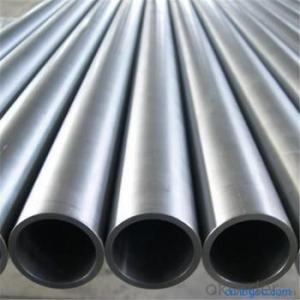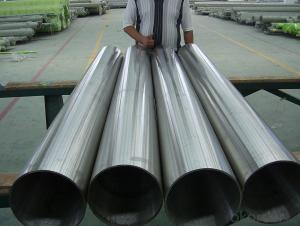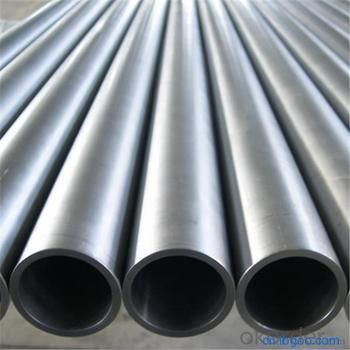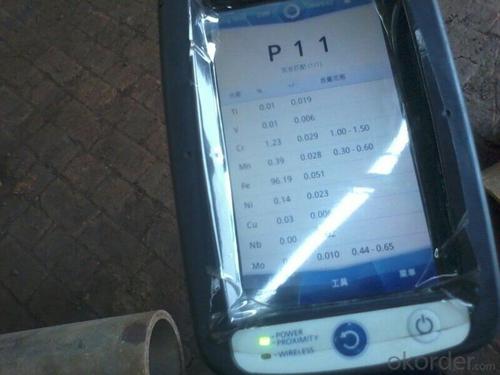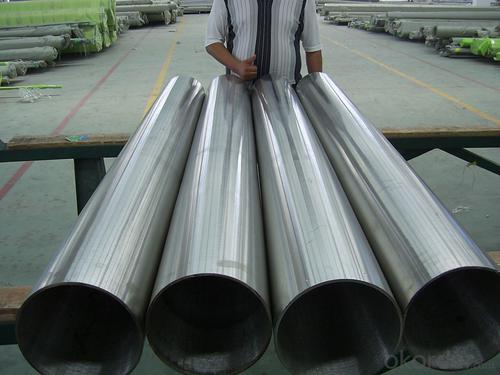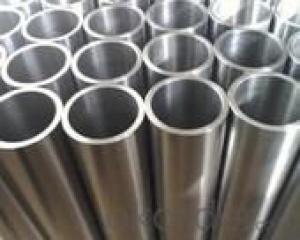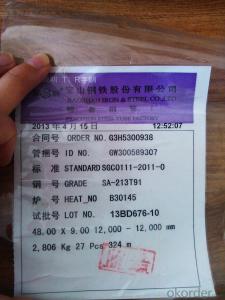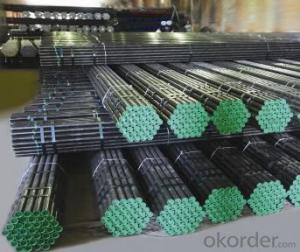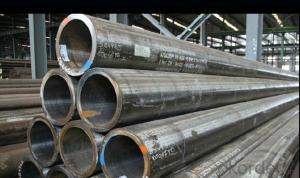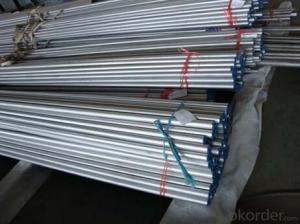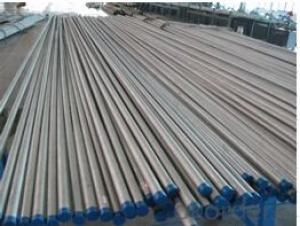ASTM A213 T91 boiler tube 328
- Loading Port:
- Shanghai
- Payment Terms:
- TT OR LC
- Min Order Qty:
- -
- Supply Capability:
- 30000 kg/month
OKorder Service Pledge
OKorder Financial Service
You Might Also Like
Alloy pipe stock grade A335P11/P22/P12/P91/P92/P9/P5 A213 T11/T22/T12/T91/T91/T9/T5
T91 alloy pipe is America national tree like ridge and America combustion new martensitic heat-resistant steel engineering company metallurgical materials laboratory research work. It is to reduce the carbon content of 9Cr1MoV steel on the basis of the content of sulphur, phosphorus, strictly limit the vanadium, niobium, adding small amount of alloying elements.
The number of K90901 T91 alloy tube
T91 alloy tube
T91 alloy pipe specifications: 8-1240 x 1-200mm
Overview of T91 alloy tube:
T91 alloy tubes for ferrite and Olympic alloy steel seamless steel tube boiler, overheating and heat exchanger belongs to (ASTM A213 / A213M-07a)
Use:
For low and medium pressure boiler (work pressure is generally not more than 5.88Mpa, the operating temperature at 450 DEG C) of the heating surface tube; used for high pressure boiler (work pressure is generally above 9.8Mpa, operate at a temperature of 450 DEG to 650 DEG C between) the heating surface tubes, economizer, superheater, reheater, petrochemical industrial pipe.
Heat treatment of T91 alloy tube:
The final heat of T91 treatment for normalizing and high temperature tempering, normalizing temperature 1040 C, the holding time of not less than 10 min, the tempering temperature is 730 to 780 DEG C, the heat preservation time is not less than 1h, the final heat treatment on Microstructure of tempered martensite
- Q: What is hot rolled steel pipe? What is a cold drawn steel tube?
- General use seamless steel tube: is with 10, 20, 30, 35, 45# and other high-quality carbon steel, 16Mn, 5MnV and other low-alloy structural steel or 40Cr, 30CrMnSi, 45Mn2, 40MnB and other alloy steel hot-rolled or cold rolled. Seamless tubes made of low carbon steel, such as 10, 20, are mainly used for fluid delivery pipelines. 45. Seamless tubes made of medium carbon steel such as 40Cr, used for the manufacture of mechanical parts, such as parts of automobiles and tractors. General use of seamless steel pipe to ensure the strength and flattening test. Hot rolled steel tubes are delivered in hot rolling or heat treated conditions. Cold rolled in heat treated state.
- Q: What is the difference between seamless and ERW steel pipes?
- Seamless steel pipes are manufactured without any welded joints, resulting in a continuous and strong structure. On the other hand, ERW (Electric Resistance Welded) steel pipes are created by welding the edges of the steel strip together to form a pipe. While seamless pipes offer better strength and durability, ERW pipes are more cost-effective and suitable for less demanding applications.
- Q: What is the impact of steel pipe size on flow rate and pressure?
- The size or diameter of a steel pipe has a significant impact on both flow rate and pressure. Firstly, the flow rate refers to the volume of fluid that can pass through the pipe per unit of time. A larger pipe diameter allows for a greater flow rate as there is more space for the fluid to move through. This is due to the fact that a larger cross-sectional area of the pipe offers less resistance to the flow of fluid. Therefore, increasing the size of the steel pipe will generally lead to an increase in flow rate. Secondly, the pressure within a pipe is influenced by its size. As the fluid flows through a pipe, it encounters resistance due to friction against the walls of the pipe. This resistance leads to a pressure drop along the length of the pipe. A smaller pipe diameter results in higher frictional losses, which leads to a greater pressure drop. On the other hand, a larger pipe diameter reduces frictional losses and therefore results in a lower pressure drop. Consequently, increasing the size of the steel pipe will generally lead to a decrease in pressure drop. It is important to note that while increasing the size of a steel pipe may generally result in a higher flow rate and lower pressure drop, there are other factors that can also affect these parameters. These include the fluid properties, the length and layout of the pipe, and any additional components such as valves or fittings. Therefore, it is crucial to consider all these factors and conduct proper calculations or simulations to accurately determine the impact of steel pipe size on flow rate and pressure in a specific system.
- Q: Can steel pipes be used for natural gas distribution?
- Yes, steel pipes can be used for natural gas distribution. Steel pipes are commonly used in the natural gas industry due to their strength, durability, and ability to withstand high pressure. They are capable of safely transporting natural gas over long distances and are often preferred for their resistance to corrosion and leaks.
- Q: What does "SC50" steel pipe mean in civil engineering?
- Welded steel pipe refers to the use of steel or steel plate bending deformation into a round, square and other shapes after welding into the surface of the joint of the steel pipe. The blank used in welded steel pipe is steel or strip steel.
- Q: What are the limitations of using steel pipes?
- Some limitations of using steel pipes include their susceptibility to corrosion and rust, which can affect their durability and lifespan. Steel pipes are also relatively heavy and can be challenging to transport and install compared to lighter materials. Additionally, steel pipes may require more extensive maintenance and repairs due to their vulnerability to cracks and leaks.
- Q: What is the difference between black steel pipe and galvanized steel pipe?
- The main difference between black steel pipe and galvanized steel pipe lies in their coating. Black steel pipe is untreated and has a dark, matte appearance, while galvanized steel pipe is coated with a layer of zinc to prevent rusting and has a silver, shiny appearance. This coating makes galvanized steel pipes more durable and suitable for outdoor use, while black steel pipes are commonly used for indoor plumbing and gas lines.
- Q: How do you repair a damaged steel pipe?
- To repair a damaged steel pipe, the first step is to assess the extent of the damage. Once identified, the damaged section can be cut out and replaced with a new piece of pipe. Alternatively, for smaller damages, patches or clamps can be used to cover the affected area. It is essential to clean and prepare the surface properly before applying any repair method, such as welding or epoxy. Seeking professional help is recommended for complex or extensive damages to ensure a safe and effective repair.
- Q: Can steel pipes be used for high-pressure applications?
- Yes, steel pipes can be used for high-pressure applications. Steel pipes are known for their strength and durability, making them suitable for handling high-pressure fluids, gases, or steam in various industries such as oil and gas, construction, and manufacturing. They are designed to withstand the high internal pressure and are commonly used in pipelines, steam systems, and hydraulic systems where the pressure requirements are significant.
- Q: Can steel pipes be used for structural purposes?
- Yes, steel pipes can be used for structural purposes. Due to their high strength, durability, and resistance to various environmental factors, steel pipes are commonly used in construction for applications such as supporting structures, frames, and columns. They offer superior load-bearing capacity and are especially suitable for use in large-scale infrastructure projects.
Send your message to us
ASTM A213 T91 boiler tube 328
- Loading Port:
- Shanghai
- Payment Terms:
- TT OR LC
- Min Order Qty:
- -
- Supply Capability:
- 30000 kg/month
OKorder Service Pledge
OKorder Financial Service
Similar products
Hot products
Hot Searches
Related keywords
